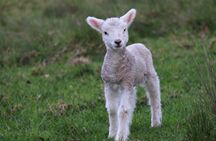只会管爱人叫honey?这里有20种甜蜜昵称 拿走不谢!(上)
|
爱情可以是永恒的,但是爱人间的昵称却随着时间流逝不断演变和更替。你还是只会将爱人唤作honey或sweetheart吗?这里有20种甜蜜昵称,虽然古老,但是却能给即将到来的情人节增加一点新鲜感。
What did "I'm the huckleberry to your persimmon" mean? Popular in the 1830s, it was the comparison of something small to something great. It became a saying of love and "huckleberry" came to mean sweetheart, friend, or partner. If you were to call someone a "mouse," what were you referring to them as? Taken from Old English but popularized by Shakespeare, it means a demure or quiet darling, particularly a woman. demure[dɪˈmjʊr]: adj. 端庄的;娴静的 Not a knight in training, what did "squire" mean? A "squire" is a man who accompanies or escorts a woman. What did "lambkin" refer to? Used by Shakespeare in his "Henry" plays, "lambkin" can refer to both a small child and lovers. It was an endearing term used among families. If you called someone "golpol," how were you describing them? This 16th-century term to describe beauty was derived from the word gold-poll or golden headed, according to David Crystal's "Words in Time and Place." What would you mean by the word "tib"? You were calling them a young calf. In 14th-century England, calves were seen as both very expensive and also cute. "Tib" refers to someone desirable. What did the name "ladybird" mean? Taken from "Romeo and Juliet," the name refers to a close female friend or sweetheart. If someone called you a "duck," they were referring to you as what? Darling or dear. This term was Shakespearean in origin. What did the term "bearcat" mean? In the 1920s, a "bearcat" referred to a hot-tempered woman with a lot of spirit. What did "old thing" mean? In the 19th century, "old thing" lost its negative connotations and was used as a term of affection for one's partner. |









